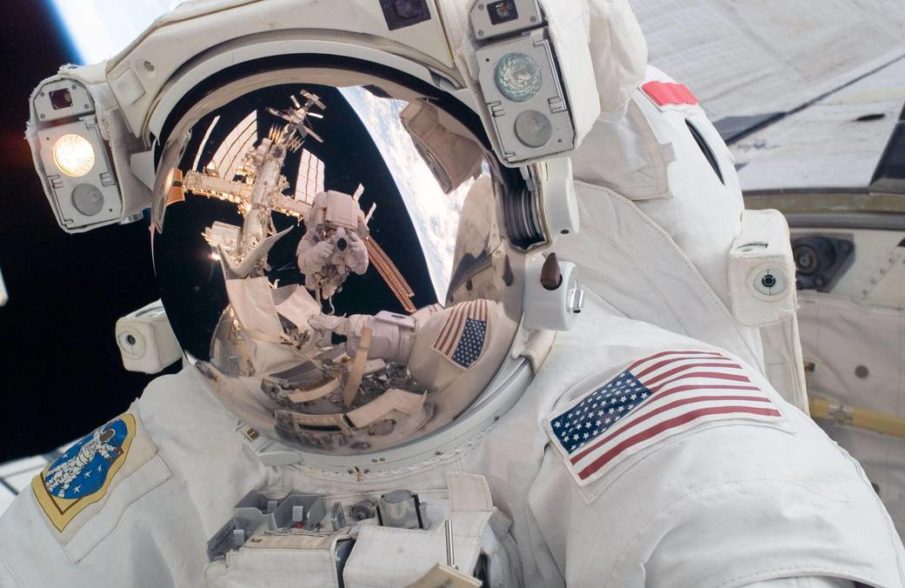While we tend to look back on NASA’s Apollo and Gemini days as a golden era of space exploration, for the men and women involved in the massive undertaking, peace was far from their minds. Through the rosy lenses of history, we tend to think of America’s space pioneering efforts as an example of mankind’s ability to put aside differences in favor of a far-reaching goal – but in reality, the space race was always an extension of the Cold War.
Today, people often posit the question, “why haven’t we gone back to the moon in decades?” It’s not an unfair one – we managed to put two men on the moon using an entire spaceship that possessed less computing power than the phone you may have dropped in the toilet once or twice, and although the expense of the trip was high, most of the tech required for the voyage has already been developed, tested, and even improved upon since.
If you ask famed astrophysicist Neil DeGrasse Tyson why we haven’t made a more concerted effort toward space exploration and travel in recent decades, he’ll provide a succinct answer. The problem is that we’re no longer amidst a space race with another nation that may use their space-born superiority as the ultimate high ground in a military conflict, as we feared the Soviets might do.
According to Tyson, that fear could ignite serious change in the way we think of space operations in the modern world.
“This would reignite the flames of innovation that I think we, at least in the US, at one time took for granted,” Tyson explained, “You would transform a sleepy country into an innovation nation and you’d do it practically overnight. And that transformation has huge economic implications.”
In an episode of his podcast StarTalk, Tyson was even more succinct, stating plainly that, “If China announced plans to build a military base on the moon, we’d be there in a month.”
Well, he may just get his wish. A number of nations have recently begun making significant strides toward matching America’s space capabilities, in large part because the United States has not expanded upon its celestial skill set (for the most part) in decades, allowing lesser developed nations to close the gap between us. China has indeed announced plans to go to the moon, though there have been no claims of Chinese moon bases surfacing quite yet. Russia has become the only nation with a personnel ferry service into orbit since the American space shuttle was retired, and thus far, no private space agency has mustered the might needed to break new “ground” in the skies above us, focusing instead on reducing costs in new ways, but still conducting the normal space operations we’ve been carrying out for years. Plans for the future, of course, could change that.
Further exemplifying this point, was Iran’s successful rocket launch on Thursday.
While sending a rocket into space was once something only a few nations were capable of, the skies have grown increasingly crowded in recent years. Now the Islamic Republic of Iran has successfully placed a satellite in orbit – a feat never before accomplished by the Arab nation. It bears noting that the same technology used to send a rocket into orbit is also found in large-scale ballistic missiles. It’s no coincidence that we were sending men to the moon at the same time as we were building massive ICBMs.
While Iran’s success this week doesn’t indicate that they’ve surpassed America’s orbital capabilities in any way, it marks a clear advance toward them by a nation many wouldn’t see as a competitor to the might of the United States in space. It would seem a number of nations have recently taken to appreciating the value in having a presence high overhead, with the U.S. lagging behind in terms of concern about keeping its foothold.
If Dr. Tyson is right, however, maybe launches like Iran’s will reignite the fires of exploration and discovery, as a means by which to expand our influence and defensive posture. If not… we may see the day that we’re asking Iran for a ride to the International Space Station.
Already have an account? Sign In
Two ways to continue to read this article.
Subscribe
$1.99
every 4 weeks
- Unlimited access to all articles
- Support independent journalism
- Ad-free reading experience
Subscribe Now
Recurring Monthly. Cancel Anytime.
That might seem crazy… but the United States is also amidst pushing through a new series of economic sanctions on Russia, with American astronauts currently slated in hitch a ride in one of their rockets this very Friday.
Image courtesy of NASA











What readers are saying
Generating a quick summary of the conversation...
This summary is AI-generated. AI can make mistakes and this summary is not a replacement for reading the comments.